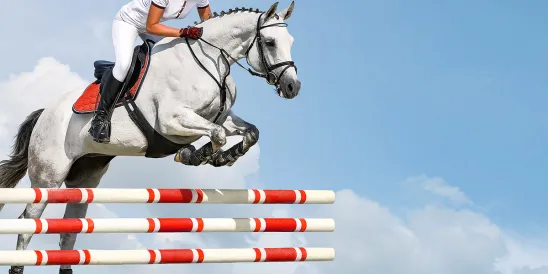Now that the Biden administration is settling in, several immigration policies enacted by the previous administration are being put on hold or rescinded altogether. Does this mean that the most commonly used visa programs by foreign nationals in the equine industry will be affected? Possibly, but possibly not, given that the majority of the visa programs utilized by non-U.S. competitors remain virtually untouched by the previous administration. In this GT Alert, we discuss the most commonly obtained visas by foreign national equine athletes who travel to America to compete in horse shows, eventing, polo matches, and horse racing.
Visa Waiver Program
One of the most popular methods for foreign nationals competing or participating in equine events to legally visit the United States is through the use of the Visa Waiver Program. This program permits individuals from specific countries (generally those with longstanding, friendly relations with the United States) to travel to the United States for up to 90 days without getting a visa in advance. Instead, the foreign national obtains online pre-travel authorization from the U.S. Customs and Border Patrol (CBP). Upon arrival in the United States, the foreign national applies for admission from a CBP officer. Admittance to the United States under this type of visa is subject to several restrictions: (1) the individual cannot be employed while in the United States – he or she may, however, accept prize money, but no other form of compensation; (2) the individual cannot overstay the 90 days; and (3) the individual cannot apply for a different visa or change visas while in the United States under the Visa Waiver Program.
B-1 Visa
This type of visa is generally available for those conducting business in the United States on a short-term basis. Here, the equine industry professional would be admitted to the United States for up to one year per visit. A B-1 visa may be renewed for several visits over a number of years. The foreign national applying for this type of visa must apply at the U.S. embassy or consulate in his or her home country. The equine professional may compete under this visa but must provide supporting evidence of his or her participation in the sport or competition. For those in the horse-racing industry, the B-1 visa provides a special carve-out and may be obtained by jockeys, trainers, sulky drivers and grooms, as long as they are working for and paid by a non-U.S. employer.
P-1A Visa
A P-1A visa may be obtained by equine industry professional athletes who wish to compete in the United States in various disciplines. The visa is not for lower-level or amateur competitors; rather, it is designed to be used by “internationally recognized” athletes currently competing and well-known in the sport. Documentation of the athlete’s international prominence is required. The visa term cannot be longer than five years. The application is filed with a different entity, the United States Citizenship and Immigration Services (USCIS), by the athlete’s employer or agent. One advantage of obtaining a P-1A visa is that the professional admitted to the United States with this visa may also bring along support personnel under a separate but contingent visa known as the P-1S visa. The P-1S visa will only be issued in conjunction with a P-1A visa, and only for the same period of time.
O-1A Extraordinary Ability Visa
The extraordinary ability visa is reserved for those at the top of their respective professions in the sciences, arts, education, business, or athletics, such as Olympic-level athletes competing internationally. This type of visa can also be obtained by outstanding coaches and trainers, and there is no requirement to be a current competitor. As with the P-1A visa, a U.S. employer or agent must file with USCIS on behalf of the athlete, and documentation of the foreign national’s status is required. Also as with the P-1A visa, a separate but contingent visa may be obtained for the equine athlete’s staff, known as the O-2 essential support visa. The O-2 visa is available only to those personnel who the foreign national can demonstrate are essential to his or her success in a chosen field.
Other Visas
Other types of visas exist that may be applied for by foreign nationals and/or their staff members, such as those who will be paid by a U.S. employer as opposed to a non-U.S. entity, or those who plan to stay in the United States for an extended period of time.






 />i
/>i
